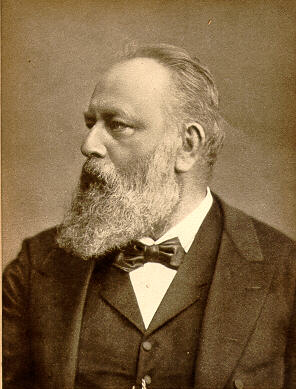Antrectomy

Editor-In-Chief: Prab R Tumpati, MD
Obesity, Sleep & Internal medicine
Founder, WikiMD Wellnesspedia &
W8MD's medical weight loss NYC, sleep center NYC
Philadelphia medical weight loss and Philadelphia sleep clinics
| Antrectomy | |
|---|---|

| |
| Synonyms | |
| Pronounce | N/A |
| Specialty | Gastroenterology, Surgery |
| Symptoms | Peptic ulcer, Gastric outlet obstruction |
| Complications | Dumping syndrome, Anemia, Malabsorption |
| Onset | |
| Duration | |
| Types | Billroth I, Billroth II |
| Causes | Peptic ulcer disease, Gastric cancer |
| Risks | |
| Diagnosis | |
| Differential diagnosis | |
| Prevention | |
| Treatment | Surgical resection |
| Medication | |
| Prognosis | |
| Frequency | |
| Deaths | |





Antrectomy is a surgical procedure involving the removal of the antrum, the lower portion of the stomach that produces gastric acid and digestive enzymes. This procedure is typically performed to treat conditions such as ulcers, gastric cancer, and Zollinger-Ellison syndrome, a disorder that leads to the formation of ulcers due to increased gastric acid secretion.
Indications[edit]
Antrectomy is indicated for patients with:
- Peptic ulcer disease (PUD) that is resistant to medical treatment
- Complications of PUD such as perforation or bleeding
- Gastric cancer located in the antrum
- Zollinger-Ellison syndrome as part of a larger surgical intervention to control acid secretion
Procedure[edit]
The procedure can be performed using either an open or a laparoscopic approach, depending on the specific circumstances and the surgeon's expertise. During an antrectomy, the surgeon removes the antrum and then reconnects the remaining stomach to the duodenum (the first part of the small intestine) or the jejunum (the second part of the small intestine) in a procedure known as gastrojejunostomy. This resection can significantly reduce the stomach's acid output and alleviate symptoms associated with excessive acid production.
Complications[edit]
As with any surgical procedure, antrectomy carries potential risks and complications, including:
- Infection
- Bleeding
- Anastomotic leak (leakage from the site where the stomach is reconnected to the intestine)
- Dumping syndrome, a condition where food moves too quickly from the stomach to the small intestine
- Nutritional deficiencies due to altered digestion and absorption
Postoperative Care[edit]
Postoperative care involves monitoring for complications, managing pain, and gradually reintroducing oral intake. Patients may need to adjust their diet and, in some cases, take vitamin and mineral supplements to compensate for reduced absorption.
Outcomes[edit]
The outcomes of antrectomy depend on the underlying condition being treated. For patients with peptic ulcer disease, antrectomy can provide relief from symptoms and prevent recurrence. In cases of gastric cancer, the procedure's success depends on the cancer's stage and extent. Long-term follow-up is necessary to monitor for potential complications and ensure adequate nutritional intake.
Ad. Transform your life with W8MD's Budget GLP-1 injections from $75


W8MD offers a medical weight loss program to lose weight in Philadelphia. Our physician-supervised medical weight loss provides:
- Weight loss injections in NYC (generic and brand names):
- Zepbound / Mounjaro, Wegovy / Ozempic, Saxenda
- Most insurances accepted or discounted self-pay rates. We will obtain insurance prior authorizations if needed.
- Generic GLP1 weight loss injections from $75 for the starting dose.
- Also offer prescription weight loss medications including Phentermine, Qsymia, Diethylpropion, Contrave etc.
NYC weight loss doctor appointmentsNYC weight loss doctor appointments
Start your NYC weight loss journey today at our NYC medical weight loss and Philadelphia medical weight loss clinics.
- Call 718-946-5500 to lose weight in NYC or for medical weight loss in Philadelphia 215-676-2334.
- Tags:NYC medical weight loss, Philadelphia lose weight Zepbound NYC, Budget GLP1 weight loss injections, Wegovy Philadelphia, Wegovy NYC, Philadelphia medical weight loss, Brookly weight loss and Wegovy NYC
|
WikiMD's Wellness Encyclopedia |
| Let Food Be Thy Medicine Medicine Thy Food - Hippocrates |
Medical Disclaimer: WikiMD is not a substitute for professional medical advice. The information on WikiMD is provided as an information resource only, may be incorrect, outdated or misleading, and is not to be used or relied on for any diagnostic or treatment purposes. Please consult your health care provider before making any healthcare decisions or for guidance about a specific medical condition. WikiMD expressly disclaims responsibility, and shall have no liability, for any damages, loss, injury, or liability whatsoever suffered as a result of your reliance on the information contained in this site. By visiting this site you agree to the foregoing terms and conditions, which may from time to time be changed or supplemented by WikiMD. If you do not agree to the foregoing terms and conditions, you should not enter or use this site. See full disclaimer.
Credits:Most images are courtesy of Wikimedia commons, and templates, categories Wikipedia, licensed under CC BY SA or similar.
Translate this page: - East Asian
中文,
日本,
한국어,
South Asian
हिन्दी,
தமிழ்,
తెలుగు,
Urdu,
ಕನ್ನಡ,
Southeast Asian
Indonesian,
Vietnamese,
Thai,
မြန်မာဘာသာ,
বাংলা
European
español,
Deutsch,
français,
Greek,
português do Brasil,
polski,
română,
русский,
Nederlands,
norsk,
svenska,
suomi,
Italian
Middle Eastern & African
عربى,
Turkish,
Persian,
Hebrew,
Afrikaans,
isiZulu,
Kiswahili,
Other
Bulgarian,
Hungarian,
Czech,
Swedish,
മലയാളം,
मराठी,
ਪੰਜਾਬੀ,
ગુજરાતી,
Portuguese,
Ukrainian
